General Chechulin: we are at the border - not a step back!
Do not hesitate - "Voennoye Obozreniye" does not stop publishing chapters from the memoirs of the head of the Moscow border detachment, retired colonel Vasily Kirillovich Masyuk. But, as you know, every serious book begins with a preface.
We decided to offer it to the readers' attention, however, only after we told about the entry of our author, Colonel Masyuk, into the post of chief of the 117th Moscow border detachment. Now, on the Tajik-Afghan border, it is again extremely restless, and on the other side, suicide units are being pulled up to the borders.
Agree, it's time to acquaint readers with an introductory speech to the memoirs of Vasily Kirillovich Masyuk. It was written by Lieutenant General Anatoly Chechulin. Of the 40 years of his calendar service, Lieutenant General of the Reserve FSB of the Russian Federation Anatoly Terentyevich Chechulin served more than eighteen in the border parts of Central Asia.
1984 to 1987 he was the head of that same 117th Moscow border detachment, and from 1993 to 1995. commanded the RF Border Group in the Republic of Tajikistan. The general called his story so - "Not a step back!". These words are still something like a motto for border guards today.
Legendary Commander
The Dushanbe general, who began his career as a lieutenant at a high-mountain outpost in the Pamirs, fought in Afghanistan, commanded the Moscow border detachment for a long time. He, who trampled, so to speak, with his feet the entire Tajik-Afghan border, commanding the OG PV and GPV FPS of the Russian Federation in the Republic of Tatarstan in the most difficult years, managed to do the almost impossible.
Anatoly Terentyevich managed to evoke a special attitude of the leadership of Russia and Tajikistan to the problems of the Russian border guards who remained there on duty. It was he who found the opportunity to ensure effective protection of the state border in conditions of maximum pressure from the militants on the Russian outposts.
General Chechulin took part in the formation of the border troops of Tajikistan and the entire system of joint protection of the Tajik-Afghan border. And he had to be not only and not so much a strategist and military man, but a diplomat and analyst, working with the civilian population and creating information support.
Chechulin, perhaps, was one of the first, even then, to emphasize the comprehensive use of the tools of “soft power”. So, thanks to him, the Group's press center was created, actively cooperating with journalists from all countries, and above all with the geopolitical enemies of Russia, its own newspaper was published, and finally, an ensemble of border troops was created.
Chechulin also organized regular press tours with visits to Russian border posts and meetings with the local population, thanks to which active information countermeasures to Russia's opponents were carried out. With the forces and means of Russian border guards, humanitarian aid was organized for the starving of the border areas, and active explanatory work was carried out with the population and armed groups both in Tajikistan and in neighboring Afghanistan.
Particular emphasis was placed on working with civil society in the Republic of Tajikistan to further promote a positive image and favorable attitude towards Russian border guards. Also, comprehensive assistance was provided to Russian compatriots and active integration and cooperation with the Government of the Republic of Tatarstan headed by President Emomali Rahmon, and especially with the security forces, was carried out.
It is significant that 25 years have passed since the departure of General Chechulin from Tajikistan in connection with the transfer to another post, but the country's leadership and ordinary people still remember the legendary commander with great warmth and gratitude.
So, your word, comrade general
A line from the Old Testament Ecclesiastes reads: “Time turns everything into the past ...". Undoubtedly, in our case, we can only add that the past is by no means oblivion and unconsciousness, and our memories are evidence of this.
A quarter of a century separates us from the tragic events on the Tajik-Afghan border, but time cannot diminish the zeal and heroism of people who have fulfilled their official and civic duty to the benefit of Tajikistan and to the honor of Russia.
A bit of prehistory
In the historical context, the territory of the state in the southeast of Central Asia, as a place of intersection of world trade routes, as an advanced clash of different religions, as the main drug traffic in this region, had a special geopolitical significance. From time immemorial, on this hard-to-reach territory inhabited by Tajik tribes, which, it would seem, were firmly stuck in the Middle Ages, more powerful, historically advanced states, like Russia and Britain, more than once converged in confrontation.
In the 60s of the XIX century, Russia's annexation campaign to Central Asia began, stretching for three decades, which had an objectively progressive significance, since it contributed to the development of capitalist relations in the region and the establishment of closer ties with the Russian people and its culture.
The establishment of Russia in the Pamirs followed a different historical scenario. The Agreement between Russia and England, signed in 1883, removed this high-mountainous region from the spheres of influence of the two powers. However, already in the same 1883, the emir of Afghanistan (under the protectorate of England) made an armed attack on these lands, and thereby doomed the Pamir population to more than a decade of suffering and humiliation.
In many ways, the reason for these atrocities was religious differences: the Pamiris practiced traditional Islam, while the Afghans practiced Sunni Islam. The population of the Western Pamirs raised uprisings against the oppressors three times, but they were all drowned in blood.
Russia could not remain indifferent to this situation. In order to study the true state of affairs in the region in 1891, an armed detachment under the command of Colonel M.E. Ionova arrived in the Pamirs. The population of this region was announced that they belonged to Russia.
By the end of the summer of 1895, the border line between the possessions of Russia and Afghanistan was finally established and the right of these states to maintain their troops in the designated demarcation zone was fixed. Russian border guards became the first and for a long time remained the only representatives of the government of the Russian state in the Pamirs. They also took on all the challenges of the tense situation at the border.
The newly created "Amu Darya" brigade with a deployment site in Termez took over the implementation of border supervision along the right banks of the Pyanj and Amu Darya rivers. The initially difficult situation in this area is also evidenced by the fact that Emperor Nicholas II, in a decree of 1895, allowed the border guards to cross the border line when pursuing violators.
Hot spot
During the Soviet period, the southern border continued to be one of the most hectic. The 20s - 50s of the last century were characterized by an upsurge in the Basmach movement, which forced the border guards by force weapons close the border, participate in raids to destroy bandit groups and their accomplices in the border zone.
It is appropriate, referring to that period, to recall the military affairs of the 117th border detachment.
In the summer of 1932, M.M. Shaputsko, the head of the Chubek frontier post of the Shuroabad commandant's office, discovered a gang of Basmachi in the amount of 35 people and entered into an unequal battle with a group of border guards. In the course of it, he and his horse breeder were wounded and taken prisoner unconscious. The Basmachi tortured the border guards, and without getting any information from them, they hacked them with blades.
On September 15, 1933, in Yakhchi-Sor, Dashtijum region, a bandit gang of up to 150 people, led by Mullah Abdurakhman, robbed the local population. To eliminate it, a consolidated detachment of 18 border guards and 10 members of assistance brigades was formed under the command of the head of the Shagon outpost of the Shuroabad commandant's office S. Abramov. When the Basmachs were crossing the Pyanj, the gang was liquidated. Only a few of the bandits were able to leave and hide in Afghanistan.
In total, from 1935 to 1940. at the site of the Shuroabad commandant's office, more than 800 violators of the border were detained, eight Basmak gangs with a total number of more than 300 people were liquidated.
During the Great Patriotic War, 517 border guards were sent from the Shuroabad commandant's office to the active army. Nevertheless, despite the large reduction in personnel, the border fighters in these difficult years at the commandant's office detained 285 violators of the state border.
For courage in the battles with the Nazi invaders during the capture of Berlin, Captain F.F. Chepurin, who went to the front from the post of chief of one of the outposts of the Shuroabad commandant's office, was awarded the title of Hero of the Soviet Union.
At dawn on May 1, 1960, soldiers of the border of the Kokul outpost, privates Kurmachev and Khamdamov, discovered a flight of the state border by an American U-2 reconnaissance aircraft at a high altitude. Private Baruzdin, duty officer at the outpost, handed a report to the detachment headquarters.
The high vigilance of the servicemen contributed to the fact that the U-2 spy plane was shot down by Soviet missilemen near Sverdlovsk, and the vigilant border guards were awarded medals "For excellence in guarding the state border."
When the years of silence have passed
Good-neighborly relations with the neighboring states of Afghanistan and China predetermined a relative calm on the border in the 60s - 70s, which then sharply changed to a "state of bleeding" in connection with the entry and actions of our troops into the territory of Afghanistan.
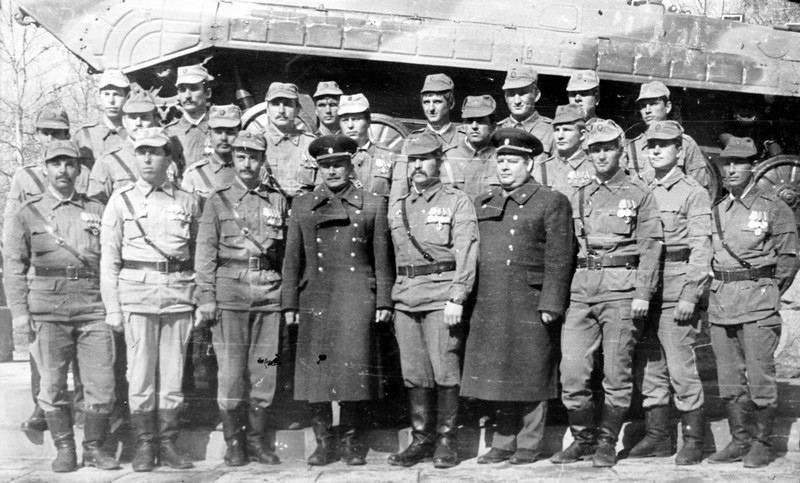
At that time, the 117th Moscow border detachment stabilized the situation in the Afghan border area by deploying combat units (SBO and MMG) in key Afghan settlements, conducting military raids, military operations, strengthening the position of the legitimate government, thereby reliably protecting the border and the Soviet population.
Examples of courage and dedication were shown by the fighters of the Houn, Seabdasht, Kalai-Kuf, Novobad, Darkhad, Chahi-Ab combined combat units. The creation of a district operational group (7 people) and its temporary deployment on the basis of the 117th POGO largely helped the management activities of the border detachment command.
On April 4, 1987, a reconnaissance and search group of 22 people was parachuted in the area of the ruins of Ivalk. The frontier guards were led by the chief of fire training of the detachment, Major A.A. Melnik and intelligence officer Major I.E. Dolgov.
The group was armed with only small arms. Their task is to exercise control over the regime of the state border and conduct military surveillance over the adjacent territory.
On the night of April 8-9, the mujahideen, consisting of at least 60 people with group weapons, secretly, occupying the dominant heights around the location of the RPG, which went on the defensive for the night, made a surprise shelling and attack on the immediate security post and the core of the group. During the period of deployment and preparation for the attack during the occupation of the commanding heights, despite the night and the downpour, the bandits were discovered by the sentry of the post A.P. Kurkin. He illuminated the area and gave the signal "For battle", at the same time taking the first bullets on himself.
In the course of hostilities, the bandits repeatedly went on the attack. The battle lasted for three hours, after which the Mujahideen retreated to Afghan territory. When inspecting the site of hostilities, five killed Afghan bandits were found. Not without losses among the border guards - private A.P. Kurkin and private R.Z. Yamilov. Particularly distinguished was Private A. Artamonov, who with a daring maneuver and fire destroyed two militants.
In total, 47 border guards of the Moscow detachment were killed during the years of the Afghan war. 202 violators of the state border and 2880 violators of the border regime were detained.
To a large extent, these were all threats emanating from the outside. As a rule, they were quite successfully neutralized by the well-established system of border protection, which combined linearity, continuity, depth, maneuvering by forces and means, and, of course, traditional support from the local population.
A critical moment
Another round of tension, long and bloody, was generated by an internal collision. The collapse of the USSR awakened the previously dormant contradictions in Tajik society, and the civil war that broke out in Tajikistan in 1991 brought them to a critical stage, giving rise to a period of bloody fratricide.
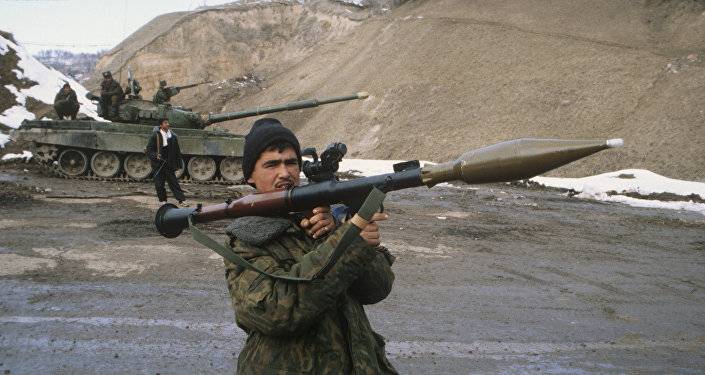
Rushing to power, leaders of the nationalist persuasion launched a persecution of the non-indigenous population. First of all, the Russian-speaking, when more than 90 thousand people were forced to leave Tajikistan. One of the targets of these frenzied attacks was the servicemen of the Russian border troops and their families.
Both the status and the behavioral order were overturned, a situation of uncertainty and confusion arose, which contributed to the "leakage" of a part of the officer corps to the border departments of the newly formed states. The military collective of the Moscow frontier detachment was also shaking and feverish.
At the officers' meetings, demands were often and harshly sounded for the leadership to decide on their destinies, to guarantee their combat activities normatively. A heavy burden then fell on the shoulders of the chief of the detachment, Vasily Masyuk: recognizing all the validity of the demands, but still extinguish these indignations.
It was clear in his reports that there were not enough words for explanations, emergency measures were needed to correct the situation. The slipping of the Center hurt the morale of the border soldiers. But to the credit of the border guards and Lieutenant Colonel Masyuk, a vivid evidence of this, the bulk of them stayed in Tajikistan, and according to the service they had worked out for decades, they continued to guard the border.
In the spring confrontation between supporters of the government and the opposition in the Ozodi and Shahidon squares, the Russian border guards displayed enviable restraint. Observing neutrality, they thereby became a factor in containing the escalation of the inter-Tajik conflict.
The rear border area of the 117th POGO - the regional centers of Kulyab (patrimony of the Popular Front) and Kurgan-Tyube (opposition detachments), flared up with hostilities and, worse, mutual terror against the local population, which was involuntarily forced to adhere (even passively) to this or that grouping.
The fratricidal massacre more than went to the Russian-speaking population. The total victims numbered in the tens of thousands. Commanders of all degrees had to maneuver in this maelstrom of human lives and destinies, in every possible way pushing the trouble away from the border guards subordinate to them.
By the decree of the President of Russia dated August 24, 1992, the border troops located on the territory of Tajikistan came under the jurisdiction of Russia. On September 23, 1992, the Group of Border Troops of the Russian Federation in Tajikistan (hereinafter - the “Group”) was organized on their base.
The question "Whose are we here?" dropped, but still stood another: "Why are we here?" By what obligation do Russians shed blood on the border of a fraternal, but already foreign state?
No refund
On May 25, 1993, an Agreement was signed between the Russian Federation and the Republic of Tatarstan on the status of the Russian border troops stationed on the territory of Tajikistan. The government of the mountainous country delegated the powers to guard the state border with Afghanistan and China to the Russian border guards.
The tasks facing the Russian fighters of the border have changed qualitatively, now they were entrusted with not only guarding, but also protecting the borders. In legal terms, all the i's were dotted, but the escalation, the tragedy of the internal conflict outpaced our ability to resist them.
After the tragic events in Dushanbe at the end of 1992, in a powerful flow of refugees to neighboring Afghanistan, a significant part of the armed irreconcilable opposition left, which, having quickly organized, re-armed, urged on by generous sponsors from radical Islam, made attempts to return to the territory of the Republic of Tajikistan.
In March 1993, up to 1000 armed militants were concentrated in Sarwada (the northern province of IGA). In the Pyanj direction, the transfer of up to 50 armored personnel carriers from Kunduz to the border line was noted, a large concentration of ferry vehicles was noted.
In the coordination center of Kunduz, the Islamic Renaissance Party (IRP) created the so-called Government of Tajikistan, which took over the leadership of the hostilities and coordination of interaction with the governments of the ISA and Pakistan in the fight against "infidels" on the territory of the Republic of Tajikistan.
In the area of the 117th POGO, the "source" period showed a tragic picture: somewhere - snapping, bearing losses, the remnants of the armed opposition left, somewhere adherents or frightened local population with household belongings tried to cross the restless Panj River. The command from above was exhaustive: “Do not interfere, do not interfere!».
It was bitter to look at this tragedy. After all, even “yesterday” all these people were “one historical community - the Soviet people. " During this period, the bullets had not yet flown at the Russian border guards, but the mental trauma was no less painful.
According to the intelligence obtained, the following were deployed against the section of the Moscow frontier detachment: in the Kokul direction - the junction with the 48th POGO, a group of militants up to 450 people; - on the Parkhar and Moscow directions - up to 650 people; - on the Sary-Chashminsky direction - up to 200 people. - against section 12 pogz (Shalmund village, Yaviz village) - more than 400 people; - on the Hounsky and Shuroabad directions - up to 500 people.
The ambient temperature on the border also jumped sharply. For two years, the border guards of the Group entered into military conflicts 221 times, 931 times were fired upon by militants. 138 border guards were killed, 316 people were injured. The border line has turned into a line of confrontation between the warring parties, and the Russian Border Group has become an active participant in the inter-Tajik armed conflict.
The ending should ...
- Valentin Malyutin, Alexey Podymov
- from the authors' personal archive, emigrant.guru, islamnews.ru
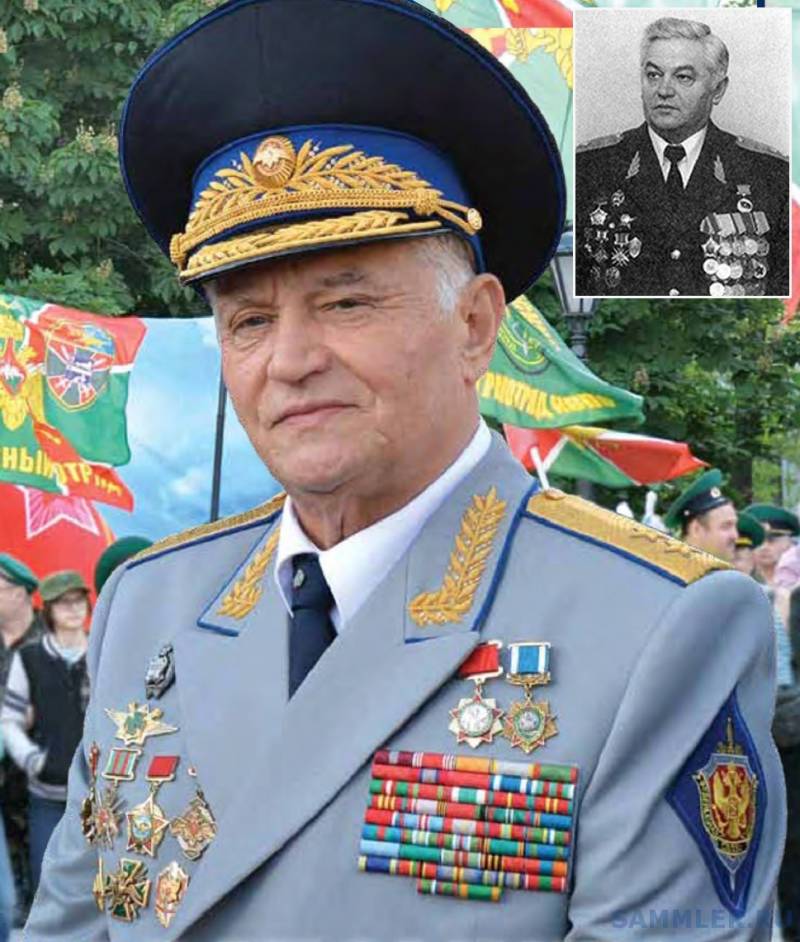
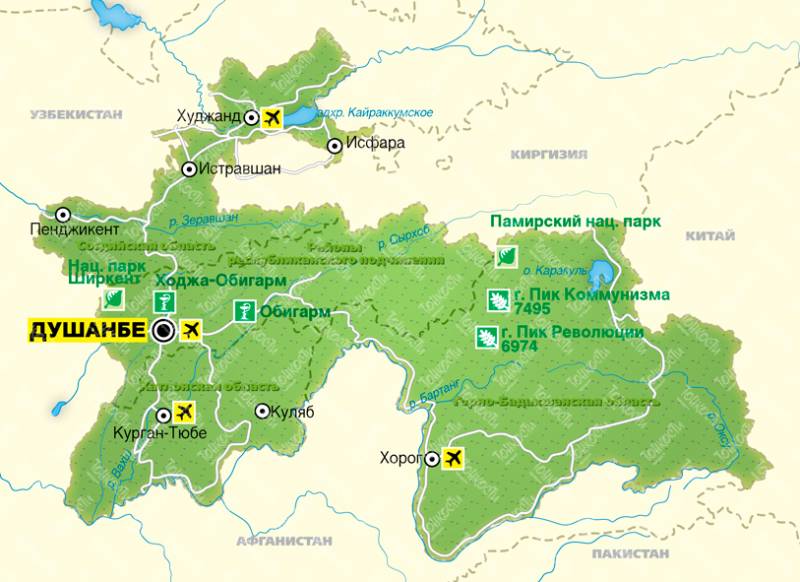
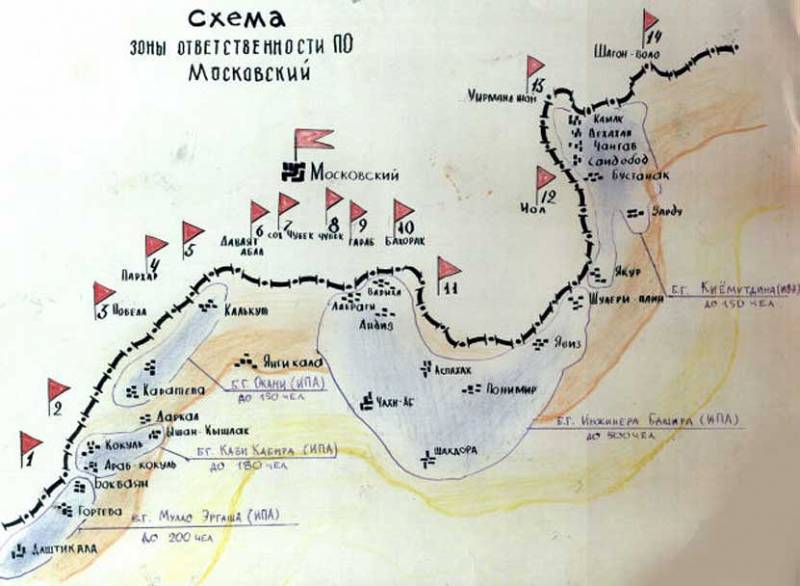
Information